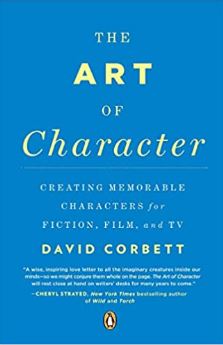Did you get all July Fourthy this year?
For me, not so much.
It’s hard to feel that star-spangled pride when there’s so much strife, upset, misery, and death.
The shine, this year, is off.
Don’t worry. I’m not going to turn the RMFW blog into a political platform.
But those brutal, long minutes in Minneapolis—a scene that triggered a national and international debate over racism and heritage, privilege and power—is a sharp reminder about a key element of the characters we’re putting on the page.
This key element is also something that will help your readers relate to your characters—and quickly dial in their place in the world.
It’s status. Power. Control.
Or, alternatively—lack of status, lack of power, lack of control.
Most stories come down to one of two basic themes.
- The character’s world is a mess and something needs to be fixed.
- The character’s world is all hunky dory but there’s an outside threat that might ruin it and needs to be stopped.
In either case, what do your characters think about their ability to control the outcome? Are they in charge? Do they feel like they have control? Or will they, during the course of your story, wake up to these issues about themselves? Or about the forces out there and barriers that are blocking their path?
It might be a good idea to see your characters through these filters—strength, dominance, authority. (Or lack thereof.) What grip do they have on their own journey? How much will that grip have changed as the story progresses? Will they feel a greater degree of freedom and control at the end? Or less? How much self-awareness about their status do they have at the start of the journey? How much at the end?
In the ever-valuable The Art of Character, David Corbett points out that a character’s self-image begins at home. “Your role within the family is a key factor in determining who you consider yourself to be vis-á-vis others, how confident you feel in the world, and how valuable you consider your contributions to be. It is also the crucible in which much of your psychological life is forged. What episodes from your character’s family life inspired her, shamed her, baffled her, created boldness, fostered uncertainty, deepened kindness, curdled into envy or hate?”
And Corbett points out that writers should not take the issue of class for granted. “This tends to get overlooked in the United States, as we like to believe we are largely a classless society. And yet we all know there are those both above and below us on the economic and social ladders, and we either secretly or overtly hope that life permits us to take a place among the former, not the latter.”
Update: I think the events from Minneapolis to Atlanta to Aurora, Colorado have erased the idea that this is a “classless society.” Don’t you?
Here’s hoping that in future Julys we can reach the 4th and feel like our national character is worthy of celebration.
The people have the power to make the change. Don’t they?
Do they?


Maybe less than they think they do. But they have to try, don’t they?
Great food for thought, Mark.